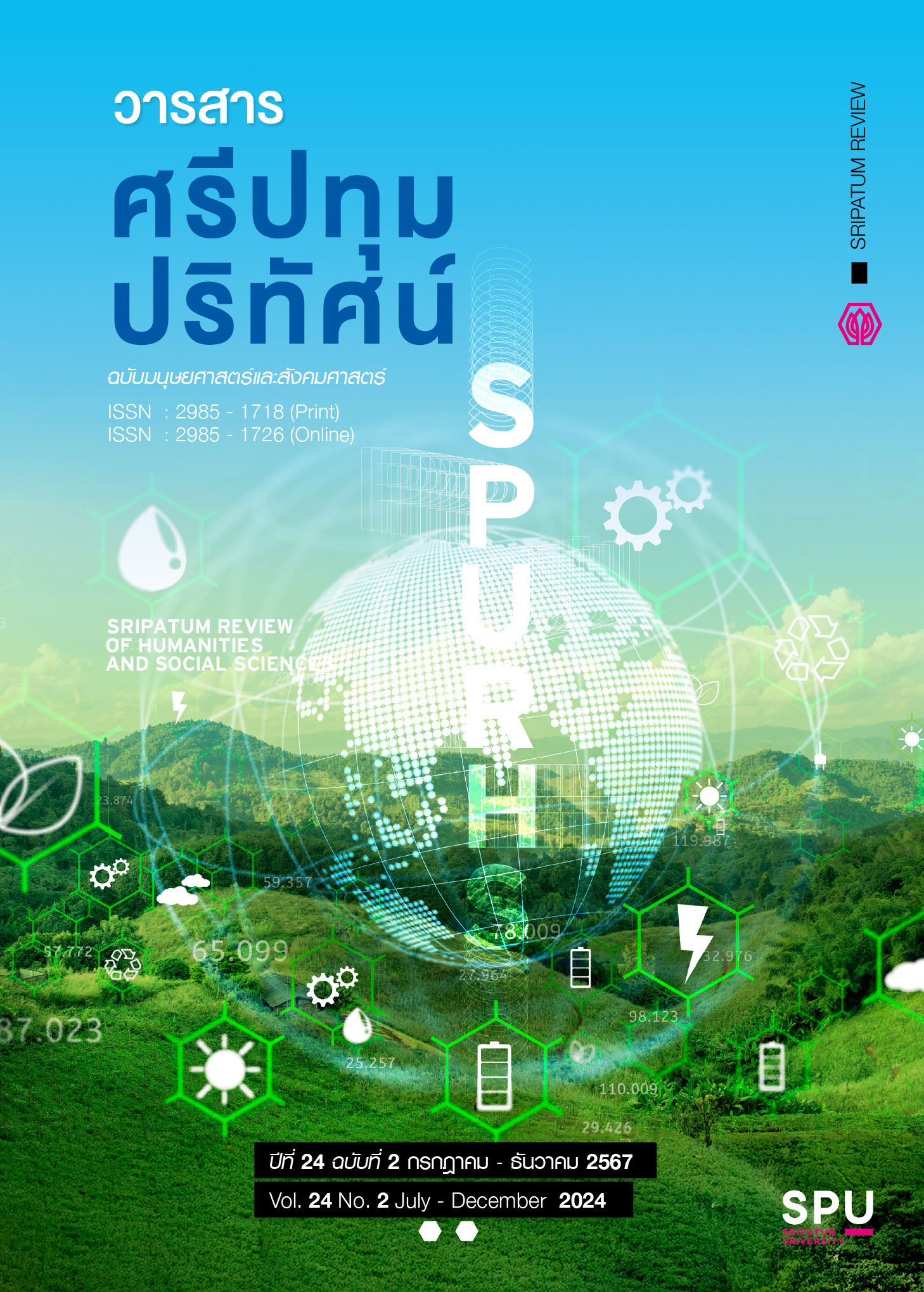Developing A Curriculum to Promote Lifelong Learning Skills for Working Adults Entering Smart Factory
Main Article Content
Abstract
Abstract
The research, “aimed to develop a curriculum to promote lifelong learning skills for working adults transitioning to Smart Factories”. The specific objectives were: 1) to investigate the challenges, feasibility, and impacts of transforming workplaces and workforce into Smart Factories; 2) to create an innovative lifelong learning curriculum to enhance the learning skills of working adults; and 3) to evaluate the effectiveness of a reskilling/upskilling program delivered through innovative learning management processes. The target group consisted of 256 working adults in industrial sectors from Prachuap Khiri Khan provinces, Nakhon Ratchasima provinces, Chiang Mai provinces, and Bangkok. Research instruments included interviews to assess challenges, feasibility, and impacts; a reskilling/upskilling curriculum delivered through innovative learning management processes; and pre- and post-training tests. Data analysis involved calculating means, standard deviations, and conducting paired t-tests. The results showed a significant difference in scores before and after the intervention, with post-intervention scores being higher. This suggests that the reskilling/upskilling curriculum delivered through innovative learning management processes was effective in enhancing the skills of working adults in the participating industrial sectors.
Article Details

This work is licensed under a Creative Commons Attribution-NonCommercial-NoDerivatives 4.0 International License.
1. กองบรรณาธิการสงวนสิทธิ์ในการพิจารณาและตัดสินการตีพิมพ์บทความในวารสาร
2. บทความทุกเรื่องจะได้รับการตรวจสอบทางวิชาการโดยผู้ทรงคุณวุฒิ แต่ข้อความและเนื้อหาในบทความที่ตีพิมพ์เป็นความรับผิดชอบของผู้เขียนแต่เพียงผู้เดียว มิใช่ความคิดเห็นและความรับผิดชอบของมหาวิทยาลัยศรีปทุม
3. การคัดลอกอ้างอิงต้องดำเนินการตามการปฏิบัติในหมู่นักวิชาการโดยทั่วไป และสอดคล้องกับกฎหมายที่เกี่ยวข้อง
References
Baxter, W. (2017). Thailand 4.0 and the Future of Work in the Kingdom –ILO. Meeting Document, International Labor Organization (ILO). [Online]. Retrieved from: https://www.ilo.org ›meeting document › wcms_549062.
Häggström, B. M. (2003). The Role of Libraries in Lifelong Learning: Final Report of the IFLA Project under the Section for Public Libraries. [Online]. Retrieved from: http://www.ifla.org/ publications/the-role-of-libraries-in-lifelong-learning
Knowles, M. (1978). The Adult Learning: A Neglected Species. (2nd edition) Houston: Gulf Publishing.
Kulkalar, K. (2017). Human Capital Management in the 4.0 Economy. Thai Labour Advisory Board, Ministry of Labour. (in Thai)
Office of the National Education Commission. (2003). National Education Act B.E. 2542. Kurusapa Ladprao Printing Press.
Oncheawian, D. (2023). Development of a prototype of a human resource development institution to support the growth of industries in the Eastern Economic Corridor. Panyapiwat Journal, 15(1), 223-236. (in Thai)
Sunanchai, S. (2016). Unit 1: Philosophy of Lifelong Learning. In Teaching Materials for the Course of Lifelong Learning and Non-formal Education. Nonthaburi: Sukhothai Thammathirat Open University. (in Thai)
The Secretariat Office of the National Strategy Committee, Office of the National Economic and Social Development Council. (2018). National Strategy B.E. 2561-2580. Office of the National Economic and Social Development Council.
The World Economic Forum. (2018). World Economic Forum Annual Meeting. [Online]. Retrieved from: https://www.weforum.org/meetings/world-economic-forum-annual-meeting-2018/
Whiting, K. 2020. “These are the top 10 job skills of tomorrow – and how long it takes to learn them”. [Online]. Retrieved from: https://www.weforum.org/agenda/2020/10/top-10-work-skills-of-tomorrow-how-long-it-takes-to-learn-them.


